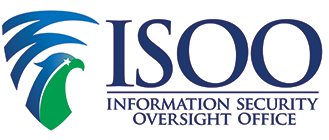
Agency Training Requirements

Executive Order 13526 and 32 CFR 2001 lay out the guidelines for required classification management training. All personnel who work with classified information must receive initial training on security policies. Additional training requirements for all individuals that work with classified information include: annual refresher training, annual training for original classification authorities, and biennial training for all derivative classifiers.
Initial Training
All cleared agency personnel shall receive initial training on:
- Basic security policies - E.O. 13526, Sec. 4.1 / 32 CFR 2001.71(b)
- Principles - E.O. 13526, Sec. 1.7
- Practices
- Criminal, civil, and administrative penalties - E.O. 13526, Sec. 5.5
Refresher Training
All employees who create, process, or handle classified information shall receive annual refresher training on:
- Reinforcement of policies, principles, and procedures covered in initial and specialized training
- Identification and handling of other agency-originated information and foreign government information
- The threat and techniques employed by foreign intelligence activities attempting to obtain classified information
- Penalties for engaging in espionage activities
- Issues or concerns identified during agency self-inspections
Original Classification Authorities
OCAs shall be provided detailed annual training on proper classification and declassification, with an emphasis on the avoidance of over-classification. At a minimum, the training shall cover:
- Classification standards (E.O. 13526, Sec. 1.1 / 32 CFR 2001.10)
- Classification levels (E.O. 13526, Sec. 1.2 )
- Classification Authority (E.O. 13526, Sec. 1.3)
- Classification Categories (E.O. 13526, Sec. 1.4)
- Duration of Classification (E.O. 13526, Sec. 1.5 / 32 CFR 2001.12)
- Identification and Markings (E.O. 13526, Sec. 1.6 / 32 CFR 2001 Subpart C)
- Classification prohibitions and limitations (E.O. 13526, Sec. 1.7)
- Sanctions (E.O. 13526, Sec. 5.5)
- Classification challenges (E.O. 13526, Sec. 1.8 / 32 CFR 2001.14)
- Security classification guides (E.O. 13526, Sec. 2.2 / 32 CFR 2001.15)
- Information sharing
Derivative Classifiers
Persons who apply derivative classification markings shall receive biennial training on the proper application of the derivative classification principles of the Order, with an emphasis on the avoidance of over-classification. At a minimum, the training shall cover:
- Principles of derivative classification (E.O. 13526, Sec. 2.1)
- Classification levels (E.O. 13526, Sec. 1.2)
- Duration of classification (E.O. 13526, Sec. 1.5 / 32 CFR 2001.12)
- Identification and markings (E.O. 13526, Sec. 1.6 / 32 CFR 2001 Subpart C)
- Classification prohibitions and limitations (E.O. 13526, Sec. 1.7)
- Sanctions (E.O. 13526, Sec. 5.5)
- Classification challenges (E.O. 13526, Sec. 1.8 / 32 CFR 2001.14)
- Security classification guides (E.O. 13526, Sec. 2.2 / 32 CFR 2001.15)
- Information sharing